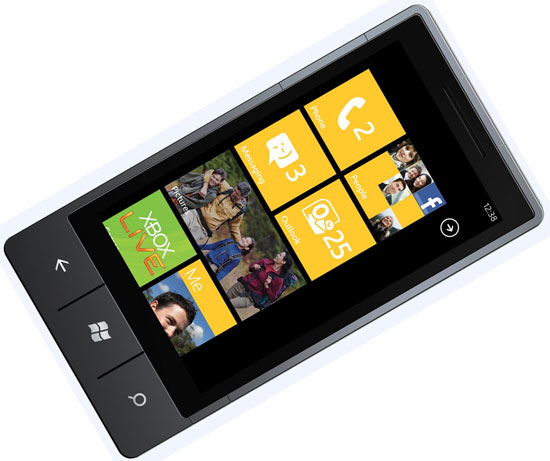|
|
In this edition of Views and News, we examine the rising incidence of "cramming" in the wireless context. We are pleased to report that the CA Court of Appeal affirmed a $40 million judgment based upon ETI damages testimony. Finally, we investigate Windows Phone and its chances for success.
Read on below, or navigate over to
econtech.com
where you can read online, or download a
printer-friendly version.
|
|
Cramming finds its way to wireless and text messaging
|
|
 Cramming, the practice of placing unauthorized, misleading or deceptive charges on a consumer's telephone bill, has been a longstanding problem for customers of traditional wireline telephone service. Given the explosive growth in demand for wireless services and the steady decline in demand for landlines, it seemed like only a matter of time before crammers – the third parties responsible for billing such unauthorized charges – would find their way over to the wireless side of the market. A recent lawsuit, Humble v. Wise Media, confirms that this is indeed a growing concern. The Humble complaint alleges wireless cramming, but also something more insidious: the unauthorized use of SMS text messaging to implement the cramming scheme.
Cramming, the practice of placing unauthorized, misleading or deceptive charges on a consumer's telephone bill, has been a longstanding problem for customers of traditional wireline telephone service. Given the explosive growth in demand for wireless services and the steady decline in demand for landlines, it seemed like only a matter of time before crammers – the third parties responsible for billing such unauthorized charges – would find their way over to the wireless side of the market. A recent lawsuit, Humble v. Wise Media, confirms that this is indeed a growing concern. The Humble complaint alleges wireless cramming, but also something more insidious: the unauthorized use of SMS text messaging to implement the cramming scheme.
Continue reading at econtech.com
|
|
California Court of Appeal upholds $40-million verdict based upon ETI Analysis and Testimony
|
|
 In 2007 and 2008, Colin B. Weir, Vice President at Economics and Technology, Inc., testified on behalf of a class of approximately 150,000 California consumers who had purchased a product called “Avacor” from Global Vision Products, Inc. The class asserted a false advertising claim against the corporation and several of its principals. In January 2008, an Alameda County, California jury returned a verdict for the plaintiff class, and awarded damages based upon the ETI testimony. One of the defendants appealed the verdict, but on April 25, 2012, the California Court of Appeal affirmed the lower court’s finding, and upheld the original $40-million damage award.
In 2007 and 2008, Colin B. Weir, Vice President at Economics and Technology, Inc., testified on behalf of a class of approximately 150,000 California consumers who had purchased a product called “Avacor” from Global Vision Products, Inc. The class asserted a false advertising claim against the corporation and several of its principals. In January 2008, an Alameda County, California jury returned a verdict for the plaintiff class, and awarded damages based upon the ETI testimony. One of the defendants appealed the verdict, but on April 25, 2012, the California Court of Appeal affirmed the lower court’s finding, and upheld the original $40-million damage award.
Continue reading at econtech.com
|
|
Is Windows Phone OS a contender?
|
|
 It wouldn't be all that surprising if you missed AT&T's launch of the Nokia Lumia 900 – the first Windows Phone handset for AT&T – earlier this month. The Lumia debuted with technical problems – internet connectivity was spotty at best – and the phone runs on an older version of Windows Phone–7.5 – while version 8 is due out later this year. Meanwhile, Apple faced unending demand for its iPhone, and sold more than 35-million units of the popular handset in the first quarter of 2012. The growth in Android-based handsets has also been astonishing. Windows Phone OS represents less than 4% of smartphone handsets in the US. Does Windows Phone stand a chance? We think the answer is yes, but not for the reasons you might expect.
It wouldn't be all that surprising if you missed AT&T's launch of the Nokia Lumia 900 – the first Windows Phone handset for AT&T – earlier this month. The Lumia debuted with technical problems – internet connectivity was spotty at best – and the phone runs on an older version of Windows Phone–7.5 – while version 8 is due out later this year. Meanwhile, Apple faced unending demand for its iPhone, and sold more than 35-million units of the popular handset in the first quarter of 2012. The growth in Android-based handsets has also been astonishing. Windows Phone OS represents less than 4% of smartphone handsets in the US. Does Windows Phone stand a chance? We think the answer is yes, but not for the reasons you might expect.
Continue reading at econtech.com
|
|
|
|
About ETI. Founded in 1972, Economics and Technology, Inc. is a leading research and consulting firm specializing in telecommunications regulation and policy, litigation support, taxation, service procurement, and negotiation. ETI serves a wide range of telecom industry stakeholders in the US and abroad, including telecommunications carriers, attorneys and their clients, consumer advocates, state and local governments, regulatory agencies, and large corporate, institutional and government purchasers of telecom services. |
|
|